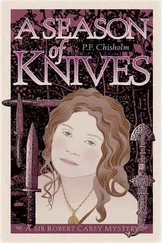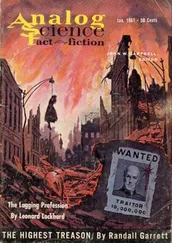P. Chisholm - An Air of Treason
Здесь есть возможность читать онлайн «P. Chisholm - An Air of Treason» весь текст электронной книги совершенно бесплатно (целиком полную версию без сокращений). В некоторых случаях можно слушать аудио, скачать через торрент в формате fb2 и присутствует краткое содержание. Год выпуска: 2014, ISBN: 2014, Издательство: Poisoned Pen Press, Жанр: Исторический детектив, на английском языке. Описание произведения, (предисловие) а так же отзывы посетителей доступны на портале библиотеки ЛибКат.
- Название:An Air of Treason
- Автор:
- Издательство:Poisoned Pen Press
- Жанр:
- Год:2014
- ISBN:9781464202223
- Рейтинг книги:5 / 5. Голосов: 1
-
Избранное:Добавить в избранное
- Отзывы:
-
Ваша оценка:
- 100
- 1
- 2
- 3
- 4
- 5
An Air of Treason: краткое содержание, описание и аннотация
Предлагаем к чтению аннотацию, описание, краткое содержание или предисловие (зависит от того, что написал сам автор книги «An Air of Treason»). Если вы не нашли необходимую информацию о книге — напишите в комментариях, мы постараемся отыскать её.
An Air of Treason — читать онлайн бесплатно полную книгу (весь текст) целиком
Ниже представлен текст книги, разбитый по страницам. Система сохранения места последней прочитанной страницы, позволяет с удобством читать онлайн бесплатно книгу «An Air of Treason», без необходимости каждый раз заново искать на чём Вы остановились. Поставьте закладку, и сможете в любой момент перейти на страницу, на которой закончили чтение.
Интервал:
Закладка:
He had liked and admired the man. He still did. There was something about him. But what was it? Time and again the Earl had done something, said something so outrageously stupid or hotheaded that Carey had been on the verge of turning his back on his cousin. Always in the past he had kept faith with the man. But it was becoming more and more difficult.
Take the summer of 1591 for instance. The Earl of Essex had insisted on taking men to France to help the King of Navarre win the throne of France. Carey, up to his eyes in debt again, had gone with him, the first time since the Armada that he had gone to war.
There in the pinched, muddy, and ugly campaign with Henri of Navarre, he had found out many things about himself. One of them was that he was actually good at war. He had found that he was a good commander and could keep his men both alive and at his side. His desertion rate was half anybody else’s. He had hit it off well with Navarre, who was a very canny fighter indeed and had offered him a permanent place at his side.
Robert Devereux looked every inch the perfect leader-large, loud, magnificent, very good at hand-to-hand combat, chivalrous, honourable…
He was useless. He was sloppy. He didn’t send out scouts. He didn’t understand anything about artillery. He didn’t pay attention to the lie of the land. He didn’t see the lie of the man either-how the King of Navarre never really committed himself to the alliance. Sure enough, in the end, Navarre left Essex and the English to hold Sluys and then went off and raided fat countryside while they guarded his back.
Carey didn’t blame the man; he was doing what princes do, but why hadn’t Essex seen what was going to happen when Carey could so easily? They had all missed out on good plunder and got bogged down in the damp flux-ridden misery of a siege.
He shook his head and glanced back past the pack pony to young Hughie. The man must have been gangling a few years ago but had now filled out and probably didn’t realise how dangerous he looked with his broad shoulders, big limbs, and saturnine face. Like most Scots he always looked as if he was nursing a grievance until you spoke to him and then his face opened out with a smile and was almost pleasant. It remained to be seen if he knew one end of a needle from the other and Carey would wait a while before he trusted his face to the man’s razor.
Hughie was looking up the road past Carey. “Whit’s that?” He pointed, then blushed and added, “sir?”
It was a mummer’s cart, brightly decorated and full of costumes and scenery with a tent on top. At first Carey thought it was stuck, but then he caught sight of a very small personage in bright gold-and-black brocade with farthingale sleeves, sitting on a white pony looking very annoyed. Her tiny size and childish face made her anger funny. However, Carey knew that it would be most unwise to laugh at the Queen’s Senior Fool and muliercula, Thomasina de Paris. She had two women with her and two men in the livery of the Master of the Revels. They were all some way back from the cart.
There was a boy driving the cart, looking very hangdog.
“If you don’t know who I am,” shouted the tiny creature, “then I’ve got no further use for you. And in any case I heard you left one of your company behind in London, sick with plague.”
Carey reined in at once. An old man was climbing up clumsily from the depths of the cart, sweating heavily in the sudden sunlight, his face pale. He had a rash on the middle of his forehead, spreading down his nose.
Thomasina instantly backed her pony away from the cart. “Stay there!” she shouted. “No nearer.”
Carey opened his pistol case.
The old man got down unsteadily from the cart and stood there, holding onto it with one hand. He coughed.
“How long since you left London?”
“A few days…” started the hangdog boy.
“Last spring,” shouted the man hoarsely. “We’ve not been in London since…April.”
“And where’s your Fool?”
The boy started to cry. “Left us!” shouted the man. “Went his own way.”
“How dare you!” shrieked Thomasina. “How dare you bring plague near the Queen’s Court? Get away! Go back to London at once and stay there until you’ve got better or died.” The high voice was tinged with the London stews and the mummer stepped back at her fury.
The old mummer swayed by his cart, his mouth opening and shutting, bright blood on his lips.
Carey began loading his pistol. Sometimes men went crazy in the first onset of plague, as their fever rose and they became delirious. That’s why they had to be shut up in their houses, cruel though it was, because if you came within ten feet of them you could catch it and die and all your family with you. Half the purpose of the Queen’s summer progresses was to get her out of London and away from the plague.
“We’ve got no money,” sniffled the boy. “He said we had to come because we haven’t got no money what with the theatres all shut and Mr. Byrd wanted singers.”
Thomasina pulled a small purse from her saddlebag and threw it to the boy. “Get yourselves back to London,” she said to him more gently. “Keep away from people. If any of you are alive in six weeks’ time, you may apply to the Master of the Revels again.”
The old man was shouting hoarsely again, making no sense at all, about how he was owed money and he had a new play and the rest would catch up with them. The boy started crying again. Neither of the Master of the Revels’ men had firearms and were standing there looking as if they were about to bolt.
Carey rode up beside Thomasina and aimed his pistol at the man. It was a long shot and he hadn’t wound his other dag, so he rested the gun’s barrel on his left wrist and breathed out to steady his pounding heart. With those death-tokens on him, shooting the old man would be doing him a kindness.
Another lad, with bandages round his neck, climbed trembling out of the cart and persuaded the old man back into it. Thomasina had acknowledged Carey’s backing with a quick glance and a lift of her shoulder. He saw she had a throwing knife in her right hand, from the sheaf she kept under her wide sleeves. Although she was only three-and-a-half-foot tall, her childlike round face had a few lines on it. She could still pass as a child if she wanted to, and perhaps she did. She had begun as a tumbler at Paris Garden and was as good with throwing knives as Carey’s previous servant, Barnabus.
They took their mounts widely around the stricken cart, Carey keeping his pistol pointed at the mummers all the way. One of the Master of the Revels’ men stayed on the road to be sure the mummers didn’t try coming into Rycote again. No doubt all of them would die out there in the field.
Thomasina was shaking her head and puffing out her breath as she slipped her knife back under her brocade sleeve. Once they had put some distance between themselves and the plague, Carey bowed to Thomasina from the saddle. “Mistress Thomasina,” he said to her, “what an unexpected pleasure!”
“Ha! You’re not sickening for anyfing yourself, are you?” she snapped at him, “I heard your servant got plague and died of it.”
“Mistress,” said Carey reproachfully, “do you think I would be coming to Court if I had knowingly been near the plague? That wasn’t what he died of.” And how the devil did she know that?
“What about him ? Is that Sergeant Henry Dodd that I hear so much about?”
Hughie’s mount pecked suddenly. “Er…no, that’s Hughie Tyndale, my new manservant.”
Hughie’s mouth was half-open and he looked shocked. Perhaps he was recovering from his new master treating someone who looked like an overdressed little girl with such respect. Or maybe he was frightened by the plague.
Читать дальшеИнтервал:
Закладка:
Похожие книги на «An Air of Treason»
Представляем Вашему вниманию похожие книги на «An Air of Treason» списком для выбора. Мы отобрали схожую по названию и смыслу литературу в надежде предоставить читателям больше вариантов отыскать новые, интересные, ещё непрочитанные произведения.
Обсуждение, отзывы о книге «An Air of Treason» и просто собственные мнения читателей. Оставьте ваши комментарии, напишите, что Вы думаете о произведении, его смысле или главных героях. Укажите что конкретно понравилось, а что нет, и почему Вы так считаете.












